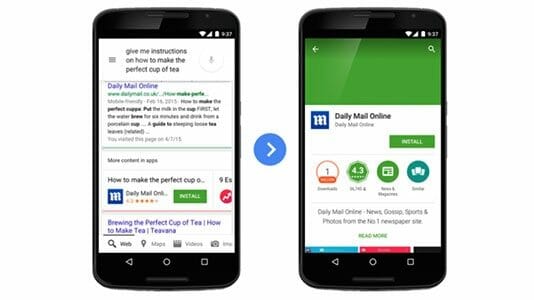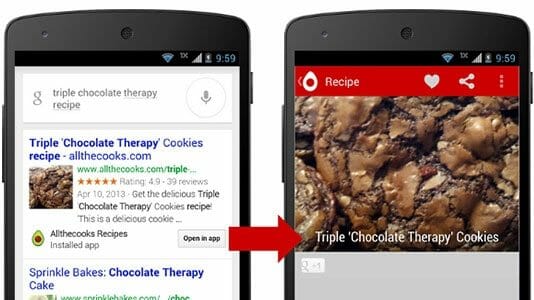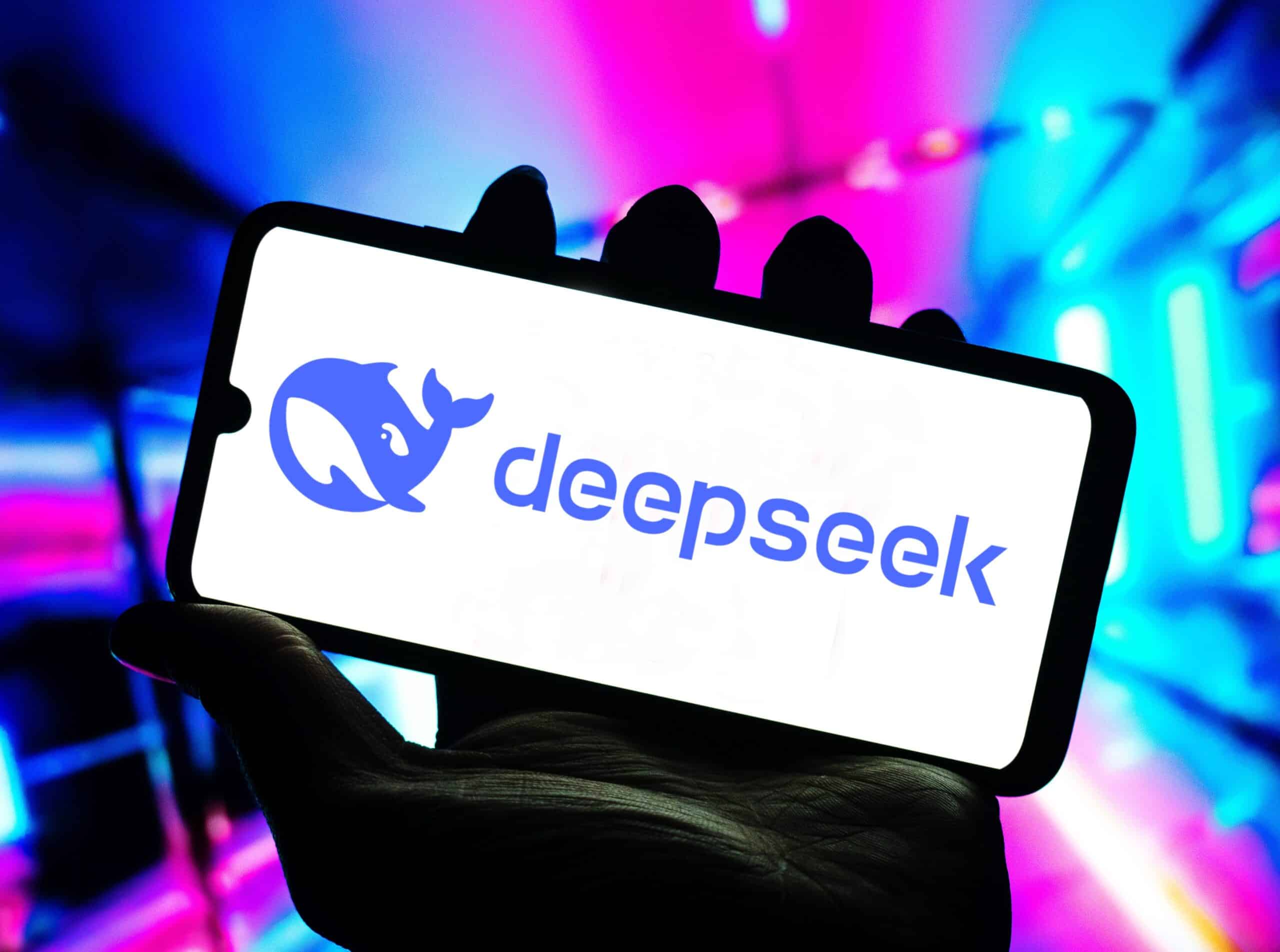Indexing has always been a part of Google’s algorithm to find new and pertinent search results for any query. Their method includes “spiders” that “crawl” the web for new and updated information on a regular basis. The information that is found by Google’s spiders is then indexed, which is then accessed anytime anyone makes a search query on the search engine. An index is basically a library of web content and information. Until recently, this information being found and indexed by Google was only the information found on mobile and desktop websites and web sources.
https://fantastic.wistia.com/medias/60cf0ufhoo?embedType=async&videoFoam=true&videoWidth=640
In October of 2013, Google began indexing the content that it found in mobile phone applications, although when this service was originally introduced in 2013 the spiders only crawled through certain app publishers and Android applications. However, in 2014 the crawling area for the spiders broadened to include iOS systems and all application publishers including Chrome, Safari and Firefox.
The way it works is quite simple to explain, but harder to create. If someone enters a search query on their mobile phone through Google, then the search results will take information not only from desktop and mobile sites but also applications that carry pertinent information. If the user who entered the search query happens to have the application with pertinent information regarding their search on their phone, than the results will open up through that app instead of a desktop or mobile site.
For example:
The search query is: “How long should I cook chicken breast?”
This was entered into Google from a mobile phone. On this same mobile phone the user has downloaded (previous to this search) the app “All Recipes”.
The Google results will now provide chicken recipes and cooking instructions in the search results.
Results: 1. Oven Roasted Chicken Breast – All Recipes
Once the user clicks on the All Recipes result, they will be redirected on their phone to the application and that very recipe will be open and ready to follow on the app.
For sites that have the same content on their main website as well as their app, the app results will appear as deep links within the search listing. If the user has the app installed and they tap on these deep links, the app will launch and take them directly to the content. A deep link is any link that directs a user past the home page of a website to a specific page. So in the context of mobile apps, a deep link would serve a specific piece of content inside it, rather than just launching the first screen of the app.
It is important for business’ to allow Google to start indexing the information available in their applications, and it is quite easy to do so. Implement Google App Indexing using the App Indexing API for Android, or by integrating the App Indexing SDK for iOS 9. If your app is indexed Google will use the information available on all platforms desktop, mobile and app to rank your page. Apps also hold a lot of data that may be missing in desktop and mobile sites. The ability to index your app will create better, more pertinent search results for users attempting to find your business or service.
The most important result of app indexing is convenience for consumers. Since most people are using their smartphone daily, sometimes all day, the apps they use on this device should also be indexed for their search queries. Imagine Googling something about bill payments and having your mobile banking app open directly from the search results page on Google. Through small time increments app indexing can save huge amounts of time, as well as provide a lot more valuable information to the consumer. Apps are amazing tools for business, and they retain customers like no other telecommunications tool has been able to. Indexing your application will increase visibility and traffic on all platforms and provides even more convenience for your potential customers.







